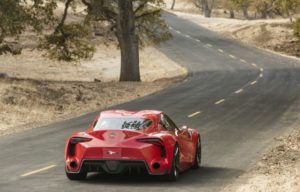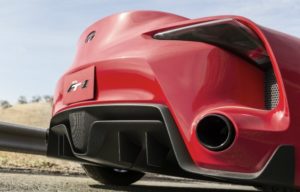
Search for: "Category Archives: Toyota"

Toyota FT-1 Sports Car Concept
Do A Double Take with Second Stunning Toyota FT-1 Sports Car Concept
Developed by Calty Design Research in Newport Beach, California, the concept vehicle’s graphite exterior paint and light, saddle-colored leather went on display for the first time at the Gordon McCall’s Motorworks Revival gala held on California’s Monterey Peninsula.
Proof that its beauty lies on the inside and out, Toyota revealed today a second interior styling and exterior color for an upscale interpretation of its sensational FT-1 sports car concept.
The original FT-1 concept ignited sports car enthusiasts and the automotive world with its January debut at the North American International Auto Show. Labeled the spiritual pace car for the new direction of Toyota Global Design, the muscular, curved exterior builds on Toyota’s rich sports coupe heritage dating back to the 2000GT, Celica, Supra, MR2 and most recently Scion FR-S. That first vehicle stunned in a bold red, while this second FT-1 impresses with sophisticated graphite. Both share the deeply sculpted intakes and outlets that support its track-ready nature and the dramatic lines seemingly shaped by the wind. It’s a look that gets the heart racing.
Sellene Lee drew inspiration for the FT-1 interior from the modern, high-tech performance materials used for today’s superhero costumes. A movie poster drew her attention to the modern shift from past heroes’ bright tights and colors to today’s performance fabrics and function. To achieve the FT-1’s advanced-looking, intricately detailed interior, Sellene Lee and the team compared leather thicknesses, grain sizes and textures to find the perfect combination. Raised metal mesh provides ventilation for the seats while lending a more textural, bold effect that beautifully matches with the metal accents. A dimensional embossed pattern on the instrument panel leather brings in a 3-D, technical look.
Beyond her superhero performance material concept, Sellene Lee moved away from the typical stitching or piping edge treatment found in many vehicle interiors. The painted red edges on the welded leather and painted brown edges on the second FT-1 were inspired by high-end leather bags she found in an upscale department store. When drivers sit in FT-1, they can feel the difference in materials, textures and color choices that resulted from the team’s work.
The color of the upscale leather changes between the first and second FT-1 vehicles, and the visual difference is striking. The first car was dominated by bold, masculine black that keeps the driver focused on the road, while red painted edges and raw metals provide intriguing accents. In the second, the natural leather on the seat is supple with an all-natural grain, giving it an authentic appeal. The painted edges that are red in the first concept are now subtly blended brown in the second.
The intention is to bring in a more sophisticated feel and authenticity through color choice, showcasing the versatility of the FT-1 sports car concept. Enthusiasts who desire a more pure high-performance experience might choose the black-red pairing, while others may desire the premium, athletic feel of the saddle leather.
Source.
A glimpse of the Toyota FT-1 Vision GT concept coming soon to Gran Turismo
A glimpse of the Toyota FT-1 Vision GT concept coming soon to Gran Turismo
Toyota has released a teaser video for their FT-1 Vision GT, a continuation on the popular concept car design shown earlier in the year. Building on the wildly popular FT-1 concept, the new car will soon enter the digital realm of Gran Turismo 6.
When the wild Toyota FT-1 concept was unveiled in January, the online world was buzzing with hype. Toyota used to be known for their exciting sports cars, but over the years had fallen into a continuous cycle of tasteless sedans and minivans. With the FT-1, people were suddenly reminded of the company’s earlier sports cars like the Supra, MR2, and the Celica. Now, with a more aggressive take on the FT-1, it looks as though the sporting pedigree of Toyota could return.
Here is a sneak peek of a very special version of the Toyota FT-1 sports car concept vehicle that will soon be available for download in Gran Turismo®6, exclusively on PlayStation®3.
This exciting concept was designed by Toyota’s Calty Design Research in Newport Beach, CA.
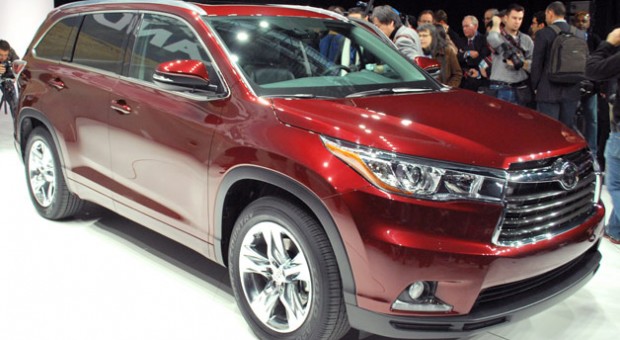
All-New 2014 Toyota Highlander
Toyota GT86 – Nice TV commercial ;)
Toyota GT86 – TV commercial
The Toyota 86 is a series of grand tourer sports coupes jointly developed by Japanese automobile manufacturers Toyota and Subaru.
In Europe, the GT86 was named the car of the year by Top Gear magazine., while Autocar named it the best driver’s car, and Auto Express gave it their performance car award.[50] Australia’s Drive gave the 86 the Car of the Year award, Best Performance Car under A$60,000 and won the People’s Choice vote., while the 86 and BRZ shared Carsguide’s Car of the Year. Top Gear Australia named the BRZ their car of the year.
They feature a boxer engine, front-engine, rear-wheel-drive layout and 2+2 seating. The 86 is sold under three different brands associated with its creators: Toyota (Toyota 86 in Japan, South Africa and Australia, Toyota GT86 in Europe, both names in New Zealand, and Toyota FT86 in Jamaica), Subaru (Subaru BRZ) and Scion (Scion FR-S for the United States and Canada).
The name 86 (pronounced “eight-six” or Hachi-Roku, more commonly pronounced as “eighty-six”) refers to the AE86 generation of rear-wheel drive sports coupes and hatchbacks sold as the Toyota Sprinter Trueno and Toyota Corolla Levin from 1983 to 1987.
The 86 has been marketed as the spiritual successor to the AE86s by Toyota, with further referencing to a heritage tracing back to the Toyota 2000GT, a front engine, rear-drive sports car with a 2.0 litre engine, as well as the Toyota Sports 800, Toyota’s first sports car.
Can you feel it? Escape from the numbness of a fake CGI city into the real world with the Toyota GT86 to Feel Real again. Watch our full length TV commercial.

All-New 2013 Toyota RAV4 SUV
The New Toyota RAV4
One of the most reliable vehicles in the Toyota stable, the RAV4 has been produced since 1994, and was most recently updated in 2006; the 2013 versions offer even more durability, as well as a sleeker design, and some efficient engine modes that use Toyota’s Integrated Dynamic Drive system.
As a sports utility vehicle, the RAV4 is one of the leading competitors to the Mazda CX-5 for value, and is set to be spun off into an all electric model later this year. At present, the RAV4 is one of the most comprehensively packaged sports utilities on the market, and should be considered by families and drivers that want long term durability.
Drivers have a choice of several trims for the RAV4 – these include the entry level Active, the mid range Icon, and the premium Invincible. All these trims have a variation on the RAV4’s standard and all wheel driving system, as well as an automatic petrol option alongside diesel engines.
The 2.0 litre petrol engine is the most powerful in terms of speed, while the 2.0 and 2.2 litre diesel engines deliver better economy at 57.6 mpg for the 2.0 diesel, and 176 g/km of CO2 emissions for the 2.2 diesel. The diesel engines are best if you want to get a low mileage, and if you’re not particularly invested in having a sports utility vehicle that can rapidly accelerate.
Exterior upgrades to the 2013 RAV4 from the earlier model include swept back lights, less of a scallop line, and a curvier, sleeker appeal. The driving position in the RAV4 has also been adjusted for a higher vantage point, while you get plenty of space within the rear. Handling for the RAV4 is flexible, if not going to deliver significant speed on the road – the larger diesel engines are slightly noisier, but still capable of cruising on the motorway.
The 1600kg weight RAV4 is stabilised against rolling, although you probably won’t want to push the RAV4 too fast on tight corners.
For interiors, the RAV4 comes with Bluetooth, air conditioning, a CD Player, and a home lighting system as standard, and extras for higher trims that include Dual Zone Air Conditioning, rear view cameras, leather steering wheels, roof rails, and leather seats. The Invincible trim version of the RAV4 also has a keyless push button start installed.
The five seater RAV4 also gives you plenty of space. When combined with optional extras for roof racks, the RAV4 is ideal for large families, and is tough enough to stand up to extended periods of driving overseas.
So, what do get out of the RAV4? Primarily, you get a competitive economy and Toyota’s reputation for durability; the RAV4 is in a low tax band, and has a five year warranty, putting it ahead of the three year warranties usually given with sports utility vehicles.
Safety features also include a hill start assist, ISOFIX child seat fixings, and aftercare maintenance that pushes the RAV4 in front of its rivals for durability. Toyota are also set to release an all electric version of the RAV4 by the end of 2013, which will further increase its economy.
Guest posts offered by Lisa Jane

2014 Toyota Highlander World Debut
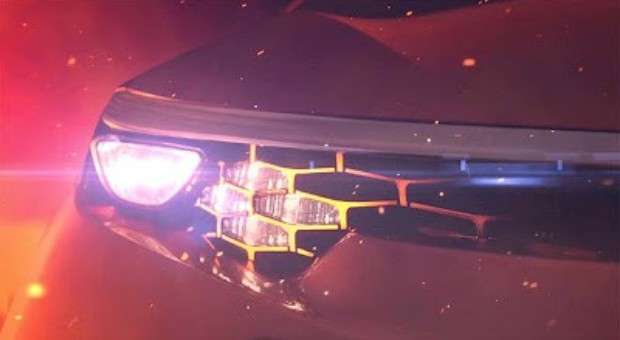
Toyota Furia Concept Debuts at 2013 NAIAS
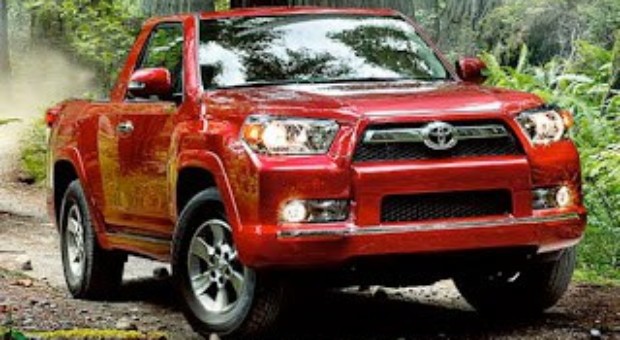
2012/2013 All-new Toyota Tacoma
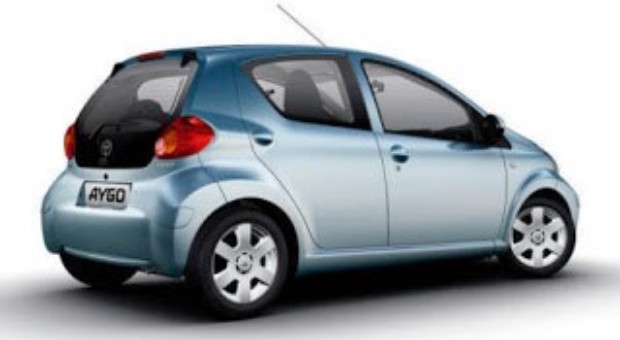
Toyota Aygo and Twins Disappoint in Safety Tests


